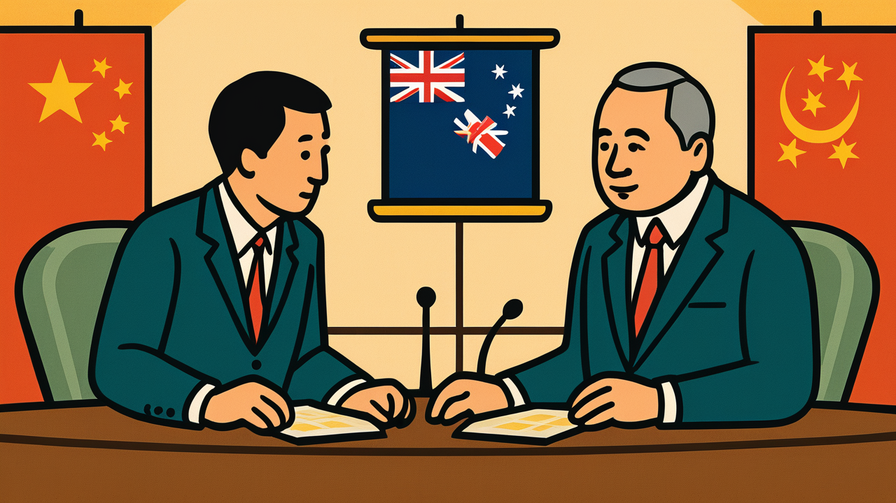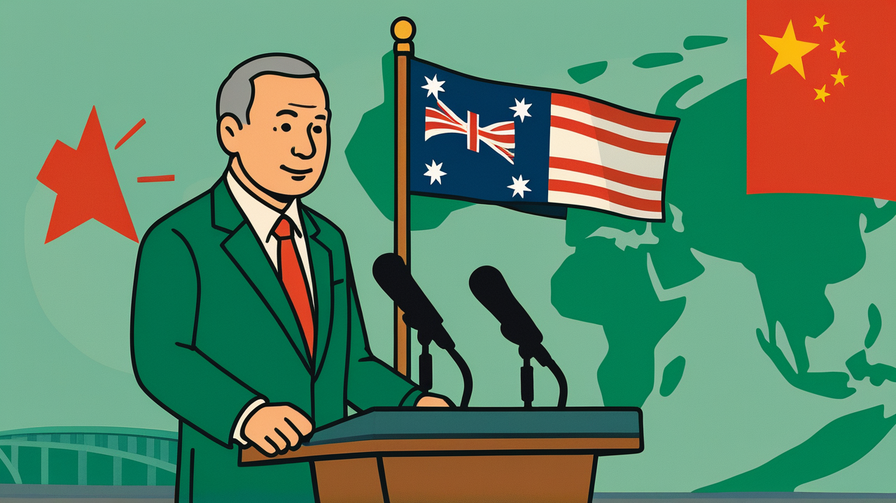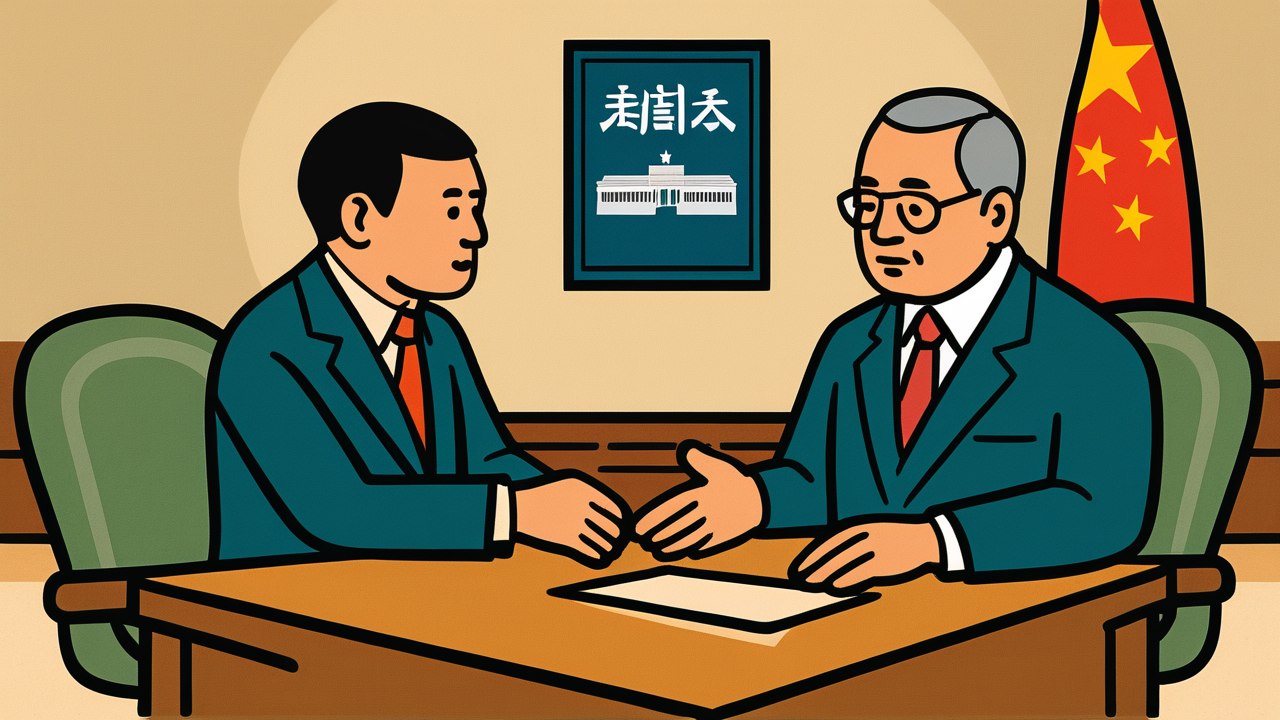[Disclaimer] This article is reconstructed based on information from external sources. Please verify the original source before referring to this content.
News Summary
The following content was published online. A translated summary is presented below. See the source for details.
Prime Minister Anthony Albanese gave a major interview with ABC’s Laura Tingle in Chengdu, China, discussing Australia’s evolving relationship with its largest trading partner. He highlighted the restoration of over $20 billion in trade after previous disputes, benefiting Australian farmers and businesses. Key achievements include resumed exports of barley, wine, and agricultural products. Albanese emphasized new cooperation on green steel production, potentially transforming Australia’s iron ore exports while addressing climate change. On security matters, he defended Australia’s sovereignty within the US alliance, addressing concerns about AUKUS submarine commitments and potential Taiwan conflicts. The PM maintained Australia supports strategic ambiguity on Taiwan and opposes changes to the status quo. Regarding the Middle East, Albanese criticized some Israeli government actions while supporting a two-state solution. He announced domestic priorities including 20% student debt reduction, childcare safety reforms, and protection of penalty rates when Parliament resumes. Throughout, Albanese emphasized balancing economic cooperation with China while maintaining Australia’s values and security commitments.
Source: Australian PM Media Centre
Our Commentary
Background and Context

Australia’s relationship with China is like a complex friendship. China buys more Australian products than any other country – things like iron ore for making steel, wine from vineyards, and barley for food and drinks. But the two countries have very different political systems and sometimes disagree on important issues.
A few years ago, this relationship hit a rough patch. China stopped buying many Australian products after political disagreements. This hurt Australian farmers and businesses badly. Now, Prime Minister Albanese is working to repair this relationship while still standing up for Australia’s values and security.
Expert Analysis
The Prime Minister is walking a tightrope – trying to balance economic benefits with security concerns. It’s like being friends with someone who buys your lunch every day but sometimes acts in ways that worry you. Australia needs China’s business, but also needs to protect its own interests.
The green steel cooperation is particularly clever. Australia has lots of iron ore (rocks containing iron), and China makes most of the world’s steel. By working together on cleaner steel production, both countries win – Australia sells more resources, China reduces pollution, and the planet benefits from lower emissions.
Additional Data and Fact Reinforcement
Let’s break down the key numbers and facts:
• $20 billion in trade has been restored – that’s huge for Australia’s economy
• China produces over 50% of the world’s steel
• 1.4 million Chinese-Australians help connect both countries
• Student debt will be cut by 20% for millions of young Australians
• Chengdu, where the interview took place, has 21 million people – almost as many as all of Australia!
Related News
The AUKUS submarine deal mentioned in the interview is Australia’s plan to buy nuclear-powered submarines from the US and UK. These submarines can stay underwater longer and travel further than regular ones, helping protect Australia’s vast coastline.
The Taiwan situation is particularly sensitive. Taiwan is an island that China claims as its territory, but Taiwan governs itself. The US and Australia support the current situation (called the “status quo”) but worry about potential conflict. It’s one of the world’s most dangerous flashpoints.
The Middle East conflict between Israel and Palestinians continues to challenge world leaders. Australia traditionally supports Israel’s right to exist but increasingly criticizes its treatment of Palestinians.
Summary

This interview reveals how Australia is trying to navigate an increasingly complex world. The Prime Minister wants to maintain good trade relations with China while staying close to traditional allies like the US. He’s promoting new industries like green steel while addressing domestic issues like student debt. The challenge is managing all these relationships without compromising Australia’s values or security. For young Australians, these decisions will shape their economic opportunities and the kind of world they’ll inherit.
Public Reaction
Business groups have welcomed the restored trade relationship, seeing it as vital for jobs and prosperity. Security experts remain divided – some worry Australia is getting too close to China, while others support the pragmatic approach. Students and young people are particularly interested in the debt relief promises and green industry opportunities. Opposition parties question whether the government is being tough enough on China’s military activities.
Frequently Asked Questions
Q: Why does Australia trade so much with China?
A: China’s huge population and growing economy need Australian resources like iron ore, coal, and food products. Geography also helps – we’re relatively close neighbors across the Pacific.
Q: What is “strategic ambiguity” about Taiwan?
A: It means countries like the US and Australia don’t clearly state whether they would defend Taiwan militarily. This uncertainty is meant to prevent both conflict and dramatic changes.
Q: How do nuclear submarines work without nuclear weapons?
A: These submarines use nuclear reactors for power (like a battery that lasts decades) but don’t carry nuclear weapons. They’re just regular submarines with a much better engine.


